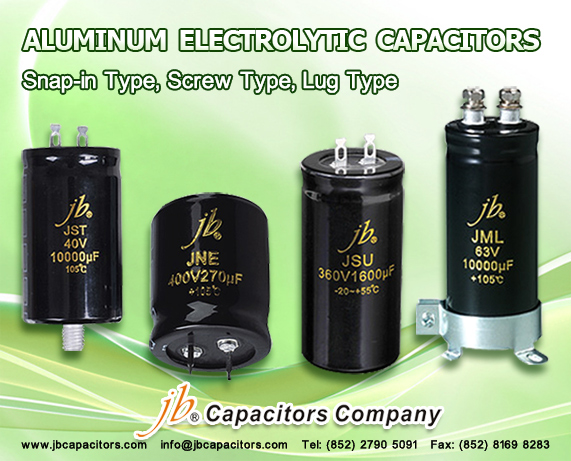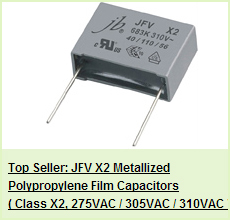jb Tells You What are Electrolytic Capacitors?
An electrolytic capacitor is a type of capacitor that uses an electrolyte to achieve a larger capacitance than other capacitor types. An electrolyte is a liquid or gel containing a high concentration of ions.
Almost all electrolytic capacitors are polarized, which means that the voltage on the positive terminal must always be greater than the voltage on the negative terminal.
The benefit of large capacitance in electrolytic capacitors comes with several drawbacks as well.
Among these drawbacks are large leakage currents, value tolerances, equivalent series resistance and a limited lifetime.
Electrolytic capacitors can be either wet-electrolyte or solid polymer. They are commonly made of tantalum or aluminum, although other materials may be used.
Super capacitors are a special subtype of electrolytic capacitors, also called double-layer electrolytic capacitors, with capacitances of hundreds and thousands of farads.
This article will be based on aluminum electrolytic capacitors. These have a typical capacitance between 1µF to 47µF and an operating voltage of up to a few hundred volts DC.
Aluminum electrolytic capacitors are found in many applications such as power supplies, computer motherboards and many domestic appliances. Since they are polarized, they may be used only in DC circuits.
Read more information please check our company website: http://www.jbcapacitors.com/Aluminum-Electrolytic-Capacitors/
From jb Capacitors Company sales department





